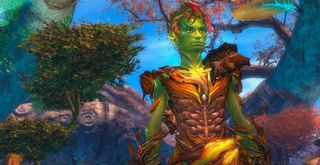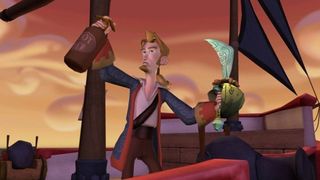What do game writers and designers think about BioWare changing the Mass Effect 3 ending?

Jesse Schell
Schell is a Professor of Entertainment Technology at Carnegie Mellon, founder of Schell Games, and a former Creative Director at Disney. In 2010, Schell got a lot of attention for a speech he gave at DICE about gamification in the age of Facebook. He's currently working on the Kickstarter-funded Puzzle Clubhouse .
"It's an interesting question. My feeling is that it's their story, they can do what they want—there isn't much to object to. Now, the question is, will it make people happy? This is a much more difficult question. So, here are some facets:
1) If people really hate the original ending, maybe changing it will make people like the game more. If so, good idea—change it!
2) People want the world of Mass Effect to seem real and solid. When you change the world like that, it robs the world of its illusion of reality. Uh, oh, don't change it!
3) This could be an awesome publicity stunt, designed to get people to talk about and pay more attention to the game. In that case, create controversy, act like the old ending will be "replaced" but then change the game so that depending on your actions in the game, you get two different possible endings!
I predict number three..."

Bobby Stein
Stein is ArenaNet's Lead Writer on Guild Wars 2. He formerly worked as a freelance writer and editor for developers including Microsoft Game Studios, Nintendo, and Tripwire Interactive.
PC Gamer Newsletter
Sign up to get the best content of the week, and great gaming deals, as picked by the editors.
"It all depends on the game. In Guild Wars 2, players have agency to push their personal stories in different directions, while also creating their own experiences by simply exploring the world and participating in dynamic events, dungeons and other activities. There's so much content that it's hard to say that there's really an ending to it, just discrete conclusions to many related stories.
We believe that the success of our game will come from our investment with the community. It's a respectful partnership. We're not simply releasing a game and then moving on to the next project. We'll support it for years to come. We already have ideas for future content, but we're constantly listening to our players to see what resonates with them. So, it's never wrong to listen to your community's feedback, but ultimately you have to take all those ideas and opinions and weigh them against what's best for the world you're evolving."

Dave Grossman
Grossman is a LucasArts alum. He co-designed Day of the Tentacle with Tim Schafer. With Schafer and Ron Gilbert, he's considered one of the creators of the Monkey Island franchise. Grossman is Design Director at Telltale, at which he helped write and design Tales of Monkey Island and other games.
"As a writer in an interactive medium, I think the idea of collaboration with the audience is really interesting. We get a little taste of it at Telltale, where, because we work episodically, we can respond to fan feedback (usually in small ways) in the later episodes of a season. But the possibilities become more and more intriguing as the whole gaming world gets used to content that updates more or less constantly, and developers get more adept at reacting to audience feedback that comes back instantly. In theory (in theory, I said) you could get close to that conversational Dungeons and Dragons experience, where the game master and the players are sitting around a table spinning a tale together. The developer essentially trades, at least to some degree, the role of author for the role of...'curator' might be a good way to put it.
Of course, what I'm talking about there is a situation where collaboration with the audience is an aspect of the experience which is included by the developer on purpose. It's part of the plan from the get-go, presumably because the developer believes there is entertainment value (or some other value) in doing it that way. It's a bit different when collaboration was not part of the plan, and an author makes revisions to a finished work because some portion of the audience responded in a negative way. I have no hard-and-fast objection to that either, indeed, I wonder whether the idea of a “finished work” is even a concept that has much validity these days. I update my website all the time, why not my game or my story? What I would ask about is not Whether an author changes a narrative, but Why? Is it done in pursuit of quality? Of a better representation of the message of the original? Or just because people complained?
My brain now insists on traveling back to 1991, when my comrades and I released Monkey Island 2. That game had a fairly bizarre ending, for which I personally bear some responsibility, and about which a significant portion of the audience expressed displeasure. During development there was a lot of discussion over whether the ending was a good idea, and I have to say that in retrospect it's not my favorite, but I was into it at the time. If we made that game today it would be easy to revise the ending after release—but I still wouldn't. We had our reasons for including it, and I wouldn't change it, never have wanted to, and I suspect Ron and Tim would both say the same. Frankly, a great game with a contentious or unpopular ending is not necessarily a bad thing.
But I'm also moved to consider The Curse of Monkey Island, made by my friends Larry and Jonathan a few (okay, six) years later. Here again there were complaints about the ending, in this case because it was absurdly short. I happen to know that they had planned a much more elaborate end, but ran out of budget (a good example of how reality sometimes prevents you from doing the best thing). I'm pretty sure that, given the chance, they would revise that—but not just because the audience raised its voice, because it would be a genuine improvement on their vision for the game.
And in the end, I think that's where I land: Listening to the audience is important, but it's when you agree with them that you should make changes. If you're going to revise stuff, by all means go ahead, but be sure you're doing it because you want to, not because you think you should."

Evan's a hardcore FPS enthusiast who joined PC Gamer in 2008. After an era spent publishing reviews, news, and cover features, he now oversees editorial operations for PC Gamer worldwide, including setting policy, training, and editing stories written by the wider team. His most-played FPSes are CS:GO, Team Fortress 2, Team Fortress Classic, Rainbow Six Siege, and Arma 2. His first multiplayer FPS was Quake 2, played on serial LAN in his uncle's basement, the ideal conditions for instilling a lifelong fondness for fragging. Evan also leads production of the PC Gaming Show, the annual E3 showcase event dedicated to PC gaming.
Most Popular




